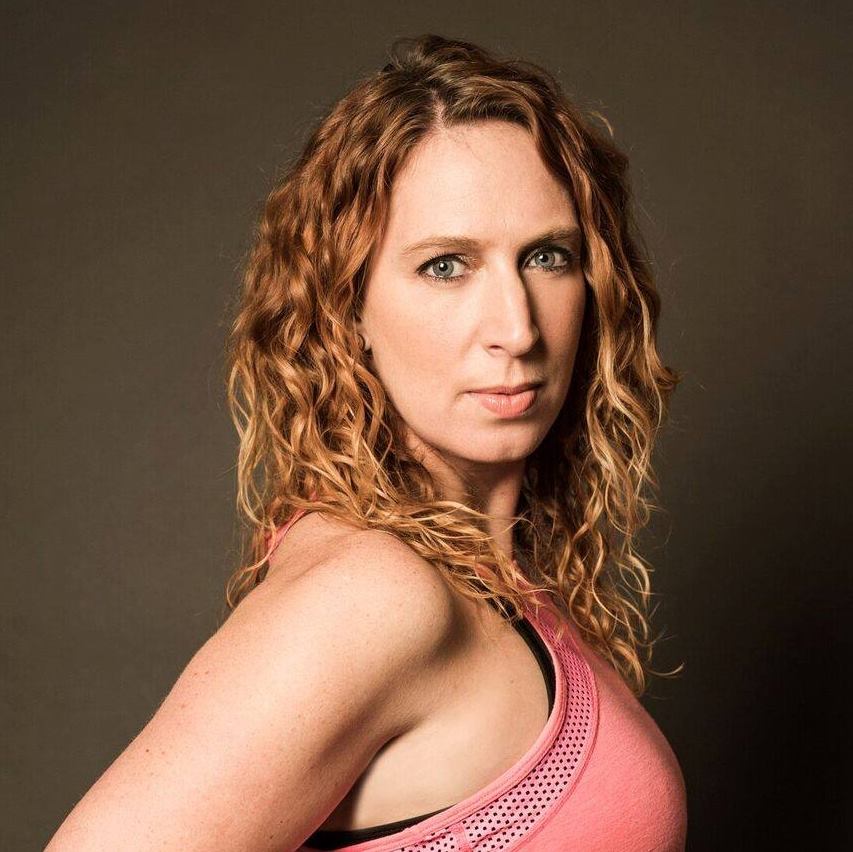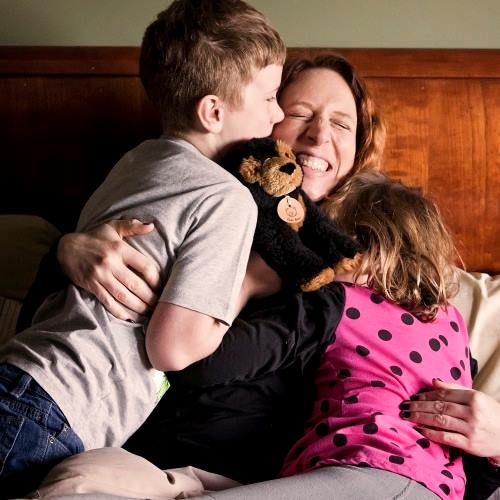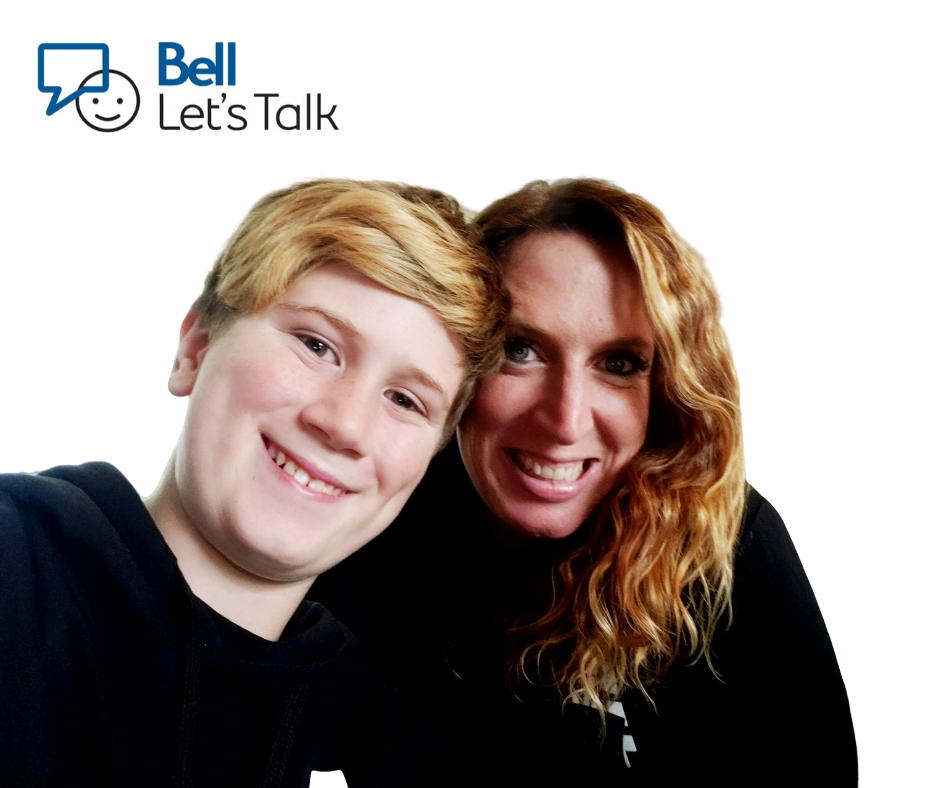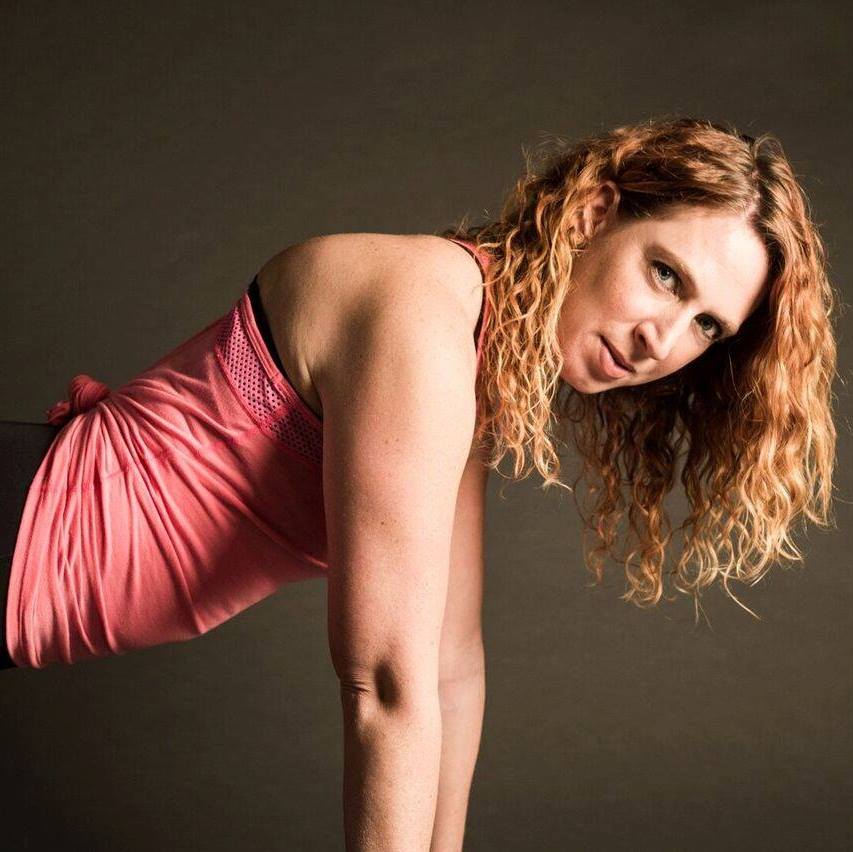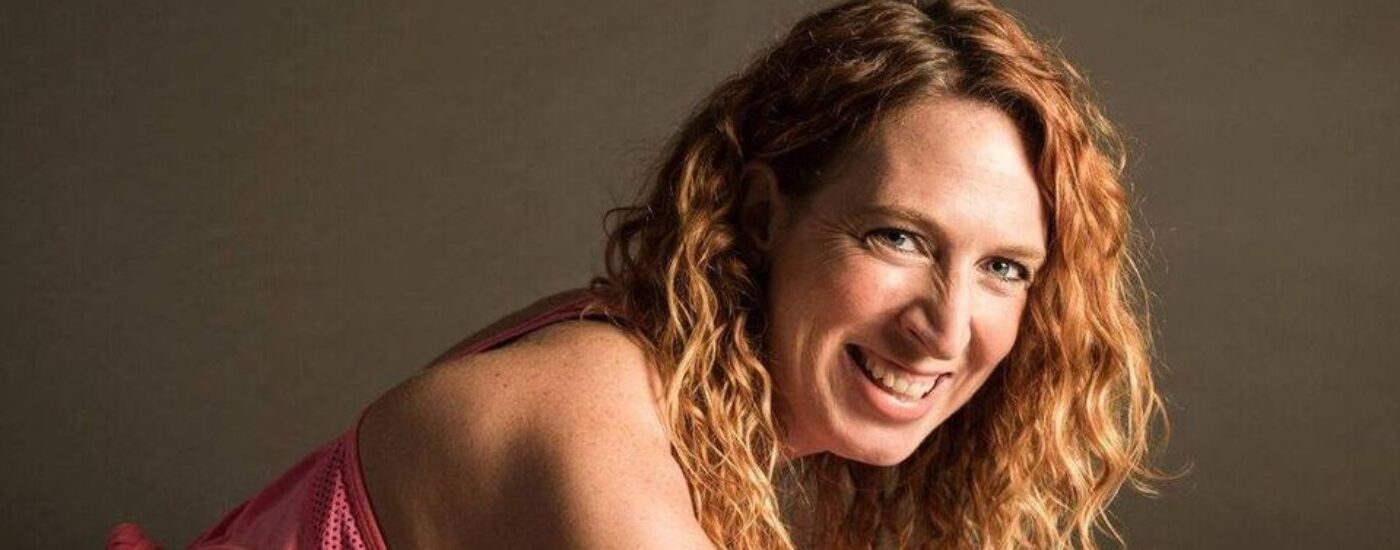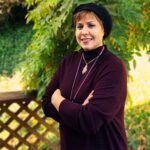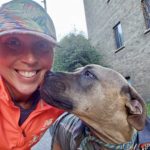Today we raise our fists high and put our hands together in celebration of our Feature Girl Warrior, fitness professional, writer, brand influencer, Lindsay Gee, PhD in Exercise Physiology, the Community Development Manager for the Vancouver Island Stigma-Free Society. Fitness has been a huge part of Lindsay’s life for as long as she can remember. She uses the power of exercise to advocate for mental health for herself and others and is passionate about helping people feel strong, confident and healthy both mentally and physically. After her son was diagnosed with multiple mental illnesses when he was 10 years old, she turned her attention to educating people on childhood mental illness and supporting others trying to find help for their child. She has also given talks at schools to help children understand the difference between mental health and mental illness and just wrote a Parent Resource Guide for the Stigma-Free Toolkit that will be released in a few months. Lindsay is also the Director of Exercise Programming & Education for Habit Lifestyle Medicine, a company dedicated to working on all pillars of health with First Responders. Here she creates fitness programs, coaches and motivates members as they journey through the number of health and wellness programs. But most importantly, Lindsay is a Mom to two brilliant and fun kiddos who keep her active, keep her laughing and help keep life lighter than adulthood demands. Lindsay loves hiking, working out and drinking white wine in her backyard. Add in some peanut butter cups and Lindsay says, “I’m in heaven!” And we say CHEERS to that!
What makes you a Girl Warrior?
Had you asked me this a year ago I would have said that I’m a Girl Warrior because I battle mental illness alongside my son. That I fight for his health and to raise awareness for youth mental health. I fight to protect him and I fight to help a broken system that is routinely ineffective and leaves people to manage on their own until they’re in crisis and near a breaking point.
But now, I’m not sure that I consider myself a Warrior. I’m an educator. I’m a supporter. I’m a Mom trying to figure out how to manage her kid’s mental illness, not battle it. Why fight something that exists and cannot be beat down? Instead, why not try to understand it, learn about it, and strategize with it? Why not accept it as a beautiful part of my child’s life – although a path I wouldn’t choose for him, it’s one that brings wonderful gifts like incredible empathy and kindness to my son. How can I battle something and be a warrior against something that is also so beautiful?
So – Girl Warrior? I’m not sure I am one. I choose, instead, to keep learning, loving and supporting those who are otherwise misunderstood.
Fitness has been a part of your life since you were 4 years old. What’s your fondest memory of going to the aerobics classes your Mom led?
The outfits. My Mom often let me choose her aerobics leotard and legwarmers and I always felt incredibly important when she let me choose what she wore to teach. I also had the “very important” job of dimming the lights during cool-down and stretch. I remember waiting for my Mom to give me the signal and she’d say “My little helper is going to turn the lights down for us now” and I don’t think I’ve ever felt more important in my life.
Also – is there anything better than 80s aerobics music?
Why is it so important for us to move our bodies and how does this help us heal?
I think it’s important to understand we move our bodies for physical, mental and emotional health. The chemicals released during and after exercise help combat stress, anxiety, it boosts focus and yes, exercise can even help you manage your mental illness.
The physical aspect? Well, I’m a firm believer in “don’t use it, lose it.” I’ve seen so many people stop moving as they age and the detrimental effects of inactivity are extensive. Joints no longer want to glide, muscles no longer want to stretch and your heart isn’t exercised the way it needs to be exercised. Aging progresses at a more rapid pace when we don’t continue to move our bodies.
For me, I believe that “exercise is medicine.” No, for many it won’t replace the medications you need to manage any mental illness you need to manage, but the endorphins alone will help you simply feel better, lighter, happier. Serotonin is released and dopamine is regulated – both directly linked to anxiety and depression. If we can help balance the chemicals in our brain with exercise – why wouldn’t we?
The ability to move your body is a gift. Think about all your body does for you in a day – it breathes for you, it beats for you, it thinks for you, it allows you to do absolutely everything you can manage – I think the least we owe it is a little movement to help keep it healthy.
Tell us about your work with First Responders and how you got involved?
I work as the Director of Fitness Programming & Education for a company called Habit Lifestyle Medicine. We currently work with RCMP members in BC but the company is expanding its offerings now to other First Responders.
We offer a year-long program called the Optimal Health Program. Through a medically directed, multi-disciplinary coaching model we will guide you to your best health.
To make the program convenient, accessible, and efficient, it is provided through a virtual care model using a leading-edge telemedicine platform along with other digital tools.
The program focuses on 6 key health pillars:
- Nutrition
- Exercise and Activity
- Restorative Sleep
- Emotional Resilience/Stress Management
- Meaningful Connection/Relationships
- Personal Vision and Purpose
It’s really the best of both my worlds. I get to use my Ph.D. in Exercise Physiology to develop personalized fitness programs for First Responders AND I get to provide education sessions at detachments on Exercise & Mental Health, Nutrition for shift work, Immunity for First Responders and Sleep Issues for First Responders. Like I said, education is a true passion of mine, so being able to work with people who do such important work is a true, true honour.
You’re a huge advocate for Children’s Mental Health Awareness. Why is this so important to you?
It’s important to me because it’s important for my son. My sweet kiddo was diagnosed with 4 mental illnesses at the age of 10: panic disorder, social anxiety, generalized anxiety disorder and depression. He is kind, sweet and has a strength I’ve seen in no one else I’ve known – including all adults.
It’s important to me to help educate our youth about mental health struggles, not only to help those who may be struggling, but to also enlighten those who haven’t had a brush with mental illness. I want to teach our youth about compassion, understanding and I dream to de-stigmatize mental illness. I dream of the day that mental illness is looked at the same way as a physical illness – something that you can recover from, heal from and not be labeled because of it.
I believe my children’s generation is the generation that is going to make a huge impact and difference in this world and with education about mental health and mental illness – they’re going to be amazing, accepting and supportive. At least, that’s my hope.
How did you get involved with Buddy Check for Jesse? What impact has that charity had on your family, in particular your son?
My son received the Buddy Check talk from his coach 2 years ago and it changed our lives. As his coach spoke about reaching out for help, about supporting teammates, about being a safe place for teammates to feel and experience the world around them – I was in tears. My son looked at me during this talk and said, “You’re my safe place, Mama.”
After the first Buddy Check weekend where the kids taped their sticks green to support mental health, I was sold on helping Buddy Check in any way, shape or form. We received the BCFJ talk before my son was diagnosed and we were 100% in crisis mode. It couldn’t come at a better time for us.
The best thing I can do is share is video from Buddy Check – Owen describes his experiences better than I ever could:
What do we need to know about mental health vs. mental illness?
This is the most important question ever. I need everyone to know that EVERYONE has mental health, but not everyone has a mental illness. I want people to know that your mental health impacts your mental illness, so you’d better take care of yourself to help stabilize and manage your illness.
Similar to when we have a cold or flu, the body needs nourishment from healthy food, lots of water, rest, etc. When someone is struggling with a mental illness, one of the first things they need to do is take care of themselves with rest, good food, exercise, connection, etc.
I want people to know you can have bad mental health days and good mental health days. I want people to know that just because you have a day where you feel a little sad it doesn’t mean you’re depressed and we need to stop throwing those words around. Saying things like this minimizes those who actually need to manage depression and OCD. “I’m so depressed,” or “I’m so OCD.” These are real illnesses that people have to live with. Your desire to follow a schedule doesn’t mean you’re OCD and a bad day doesn’t mean you’re depressed. It simply means you’re having a poor mental health day.
Whether you’re having a poor mental health day or you’ve been diagnosed with a mental illness – eating a good meal, drinking some water and getting outside for some exercise will have you feeling better. That’s the power we have – we can impact our mental health with physical health.
How do we combat the stigma around mental illness? Where do we begin?
Education. Education. Education. Learn more. Teach more. Bring mental health education into schools.
And talk, talk, talk about mental health and mental illness. Be like my son, who at 12 years old will openly talk about his struggles and how hard managing anxiety and panic attacks is. Talk and fend off judgment with facts, reality and YOUR STORY. Share your story. Worry not about what people say and talk, talk, talk about mental health to anyone who will listen – even to those you think aren’t. LOL.
What’s the biggest decision you ever made?
Aside from having kids (the biggest decision ever), it would be leaving a business I truly loved for years because it was negatively impacting my family, my health and my security – financial, mental and physical.
What have been the biggest challenges or obstacles that you’ve overcome – personally and/or professionally?
I’m a people-pleaser and for a long time I tried to make everyone happy. By doing that, I lost myself, I got mad, I got resentful. Learning that I don’t have to please anyone but myself is a big step. I want to live a life of joy, of acceptance and, of supported and supportive love – I cannot do that if I’m constantly worried about who likes me, who doesn’t and what bad stuff people are saying about me.
It’s none of my business. What IS my business is how I view myself at the end of the day. What’s important to me is at the end of the day does my family feel loved, do my friends feel loved and do I feel loved. Remembering that I’m also important and my need to feel loved, accepted and respected – that’s the biggest obstacle. People pleasing ruled my world for a solid 42 years (8 of which I tried to run a business) and left me incredibly sick – from which I am still recovering physically, mentally and emotionally. But – recovering, I am.
What do we need to know “for sure” about anxiety and depression in children?
It exists. Stop questioning whether you’re being an over-protective parent. Take your child to see someone, discuss your concerns and advocate, advocate, advocate for your child.
It’s also important to remember that our kids are not choosing depression and anxiety. If your child is truly sick, there is NOTHING they wouldn’t do to not experience what they experience. This isn’t attention-seeking. This isn’t a grab for the spotlight. This is an illness that they need help managing – with counselling, possibly medication and your knowledge of how to help their mental health (nutrition, hydration, sleep, exercise, etc.).
What’s the most important life lesson your Mom taught you?
My Mom has always said, “Be kind always.” While there may be times that kindness isn’t the response I want to give, I now turn that lesson internally and figure out what kindness I need to give myself.
What would you say to your younger Girl Warrior?
You’re enough. No matter what – you’re enough. Some people won’t like you and you need to be okay with that. You’re enough the way you are. You’re smart. You’re funny. You’re enough. I promise you – you are worthy of all the good, so don’t put yourself down, don’t doubt yourself, stand tall and love large. YOU ARE ENOUGH.
What would you say to future Girl Warriors looking for inspiration?
Ha! Be kind always to YOURSELF. We’re always so hard on ourselves and that can be an almost unbreakable pattern if you start doubting yourself, talking poorly about yourself and not trusting yourself at a young age. Stand in your truth, love yourself and always, always, be kind to yourself.
Who is/are your Girl Warrior hero(s) and why?
My friends. Truly. They’re my heroes. The ones who have stuck with me through this life of mine. The ones who left and have come back. The ones who see me for me. The ones that are strong and funny and beautiful. My friends are my Girl Warriors because I’m not sure I would be here without them – they fought for me when I couldn’t fight for myself. They fight for their families, their own self-worth and they love, love, love no matter what.
Blue Sky it. No boundaries here, just limitless opportunities. Where do you see yourself in 5 years?
Honestly, I’d be working at my same job but in a bigger role with Habit Lifestyle Medicine. I’d have helped grow the business and it’ll be thriving and incredibly successful having helped 1000s of First Responders both mentally and physically.
My son would be managing his mental illnesses and although those illnesses remind him they’re there – he’ll be managing them well and he will be living an incredibly joyful life.
My daughter will stand firmly in her own self, know her value and never doubt herself or question if she is enough.
I’d be living at my dream lake house with my dogs, my kids and the love of my life. I’ll drink wine on the weekends, have friends over for coffee and have incredibly close connections with the people in my life.
I would also be speaking all over the world about childhood mental health and how to be a “Support Warrior” for your child. I would inspire other parents to advocate for their kids, to not be afraid of mental illness and I would help them get help. My speaking schedule would be as full as I want it to be and these engagements would allow for my family and I to travel around the world and to inspire others.
In 5 years, I’ll be healed, humbled, joyful and proud.
What makes you laugh uncontrollably? Cry out all the tears?
My best friend, Jody. No matter what, she makes me laugh. Camping laughs, backyard laughs, dinner laughs, Bachelor laughs. Jody. She makes me laugh uncontrollably at the ridiculousness that is life. Jody. She’s everything.
If a bioflic were written about your life, what would it be called?
Thank you, Dickson
(FYI…Dickson is what my son calls his Anxiety)
To learn more about Lindsay, head over to her website: https://www.lindsaygee.ca/
Connect with her on LinkedIn: https://www.linkedin.com/in/lindsaygee1/
Follow her on Instagram: https://www.instagram.com/lindsayl_gee/
Facebook: https://www.facebook.com/LindsayLGee/
And Twitter: https://twitter.com/lindsayl_gee
Subscribe to Lindsay’s YouTube Channel: https://www.youtube.com/channel/UCLlJYhFYTuzxY58dT7Tphkw
